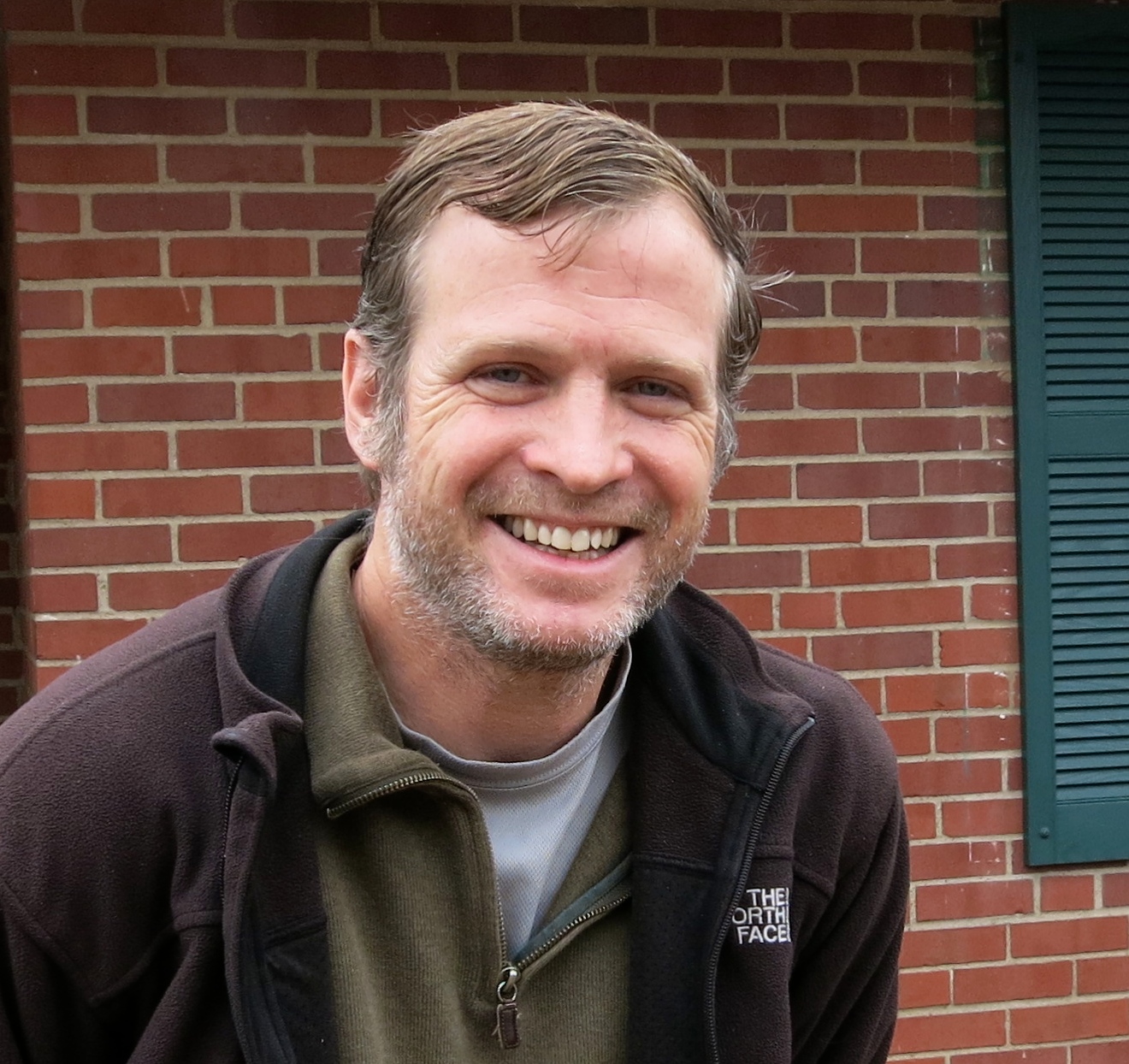
If you are passionate about gardening, there is definitely a niche out there for you. Plants are not a pet or a child, but they are living things. If you give them love, you will be rewarded.
1. What led you to the mission of being a gardener?
One way to phrase it is that I “stumbled” into gardening! When I was younger I thought for a while about studying  biology. But when I went to school, I ended up studying economics. Economics was the opposite direction from biology. After college I worked different jobs such as at a bank. These jobs had nothing to do with gardening. Twelve or thirteen years ago, my dad approached me. He was rehabbing houses in the city. He wanted me to help him out, so I did. I found that one of the things I enjoyed the most was taking a yard transforming it. Oftentimes it was a yard that had been neglected or was empty. I really enjoyed changing emptiness to something that was really beautiful. The garden would stay there for years and years and years and give joy to people. Planting a tree for example could be around for a couple of hundred years and provide all sorts of joy to people. I think it is the idea of changing an area and improving it and just the nice effect it would have on everything for years ahead. I enjoyed that and the biology part of it. I still do. After 2001 and 2002 my dad decided to stop what he was doing and I thought, “Well, I like this landscaping part, this gardening part. Let me look around. I applied at a nursery and was hired and found I really did
biology. But when I went to school, I ended up studying economics. Economics was the opposite direction from biology. After college I worked different jobs such as at a bank. These jobs had nothing to do with gardening. Twelve or thirteen years ago, my dad approached me. He was rehabbing houses in the city. He wanted me to help him out, so I did. I found that one of the things I enjoyed the most was taking a yard transforming it. Oftentimes it was a yard that had been neglected or was empty. I really enjoyed changing emptiness to something that was really beautiful. The garden would stay there for years and years and years and give joy to people. Planting a tree for example could be around for a couple of hundred years and provide all sorts of joy to people. I think it is the idea of changing an area and improving it and just the nice effect it would have on everything for years ahead. I enjoyed that and the biology part of it. I still do. After 2001 and 2002 my dad decided to stop what he was doing and I thought, “Well, I like this landscaping part, this gardening part. Let me look around. I applied at a nursery and was hired and found I really did 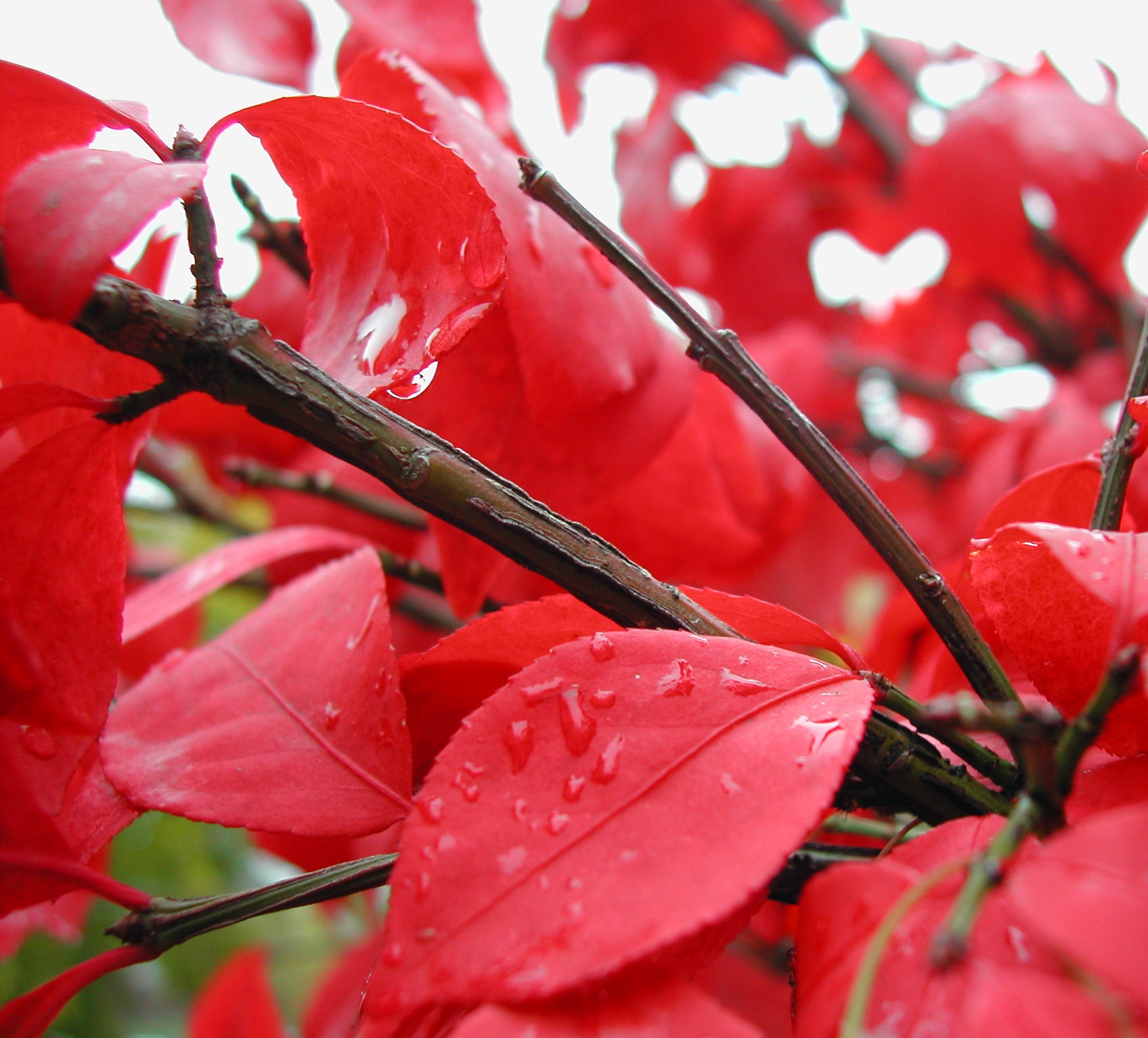 enjoy doing gardening. I loved going into an area or yard, and literally in a day or two drastically transforming it to something better that would be around for years. It’s a way to change the world – a real concrete way that will provide joy to people and joy to myself! My first years at the nursery, I had a book in my back pocket. It listed all the native plants and common plants. I referred to it all the time. Just by gardening year after year I learned so much. Then of course even now I’ll see a plant or tree that I can’t to identify or don’t know much about. I’ve got a stack of books in my truck and I’ll whip them out and learn about it. One after the other, I tried to learn as much as I could. It was fun because it was interesting to me – the variety of plants and trees out there.
enjoy doing gardening. I loved going into an area or yard, and literally in a day or two drastically transforming it to something better that would be around for years. It’s a way to change the world – a real concrete way that will provide joy to people and joy to myself! My first years at the nursery, I had a book in my back pocket. It listed all the native plants and common plants. I referred to it all the time. Just by gardening year after year I learned so much. Then of course even now I’ll see a plant or tree that I can’t to identify or don’t know much about. I’ve got a stack of books in my truck and I’ll whip them out and learn about it. One after the other, I tried to learn as much as I could. It was fun because it was interesting to me – the variety of plants and trees out there.
2. What does this mission mean to you?
One of the things that gardening definitely means is that it’s a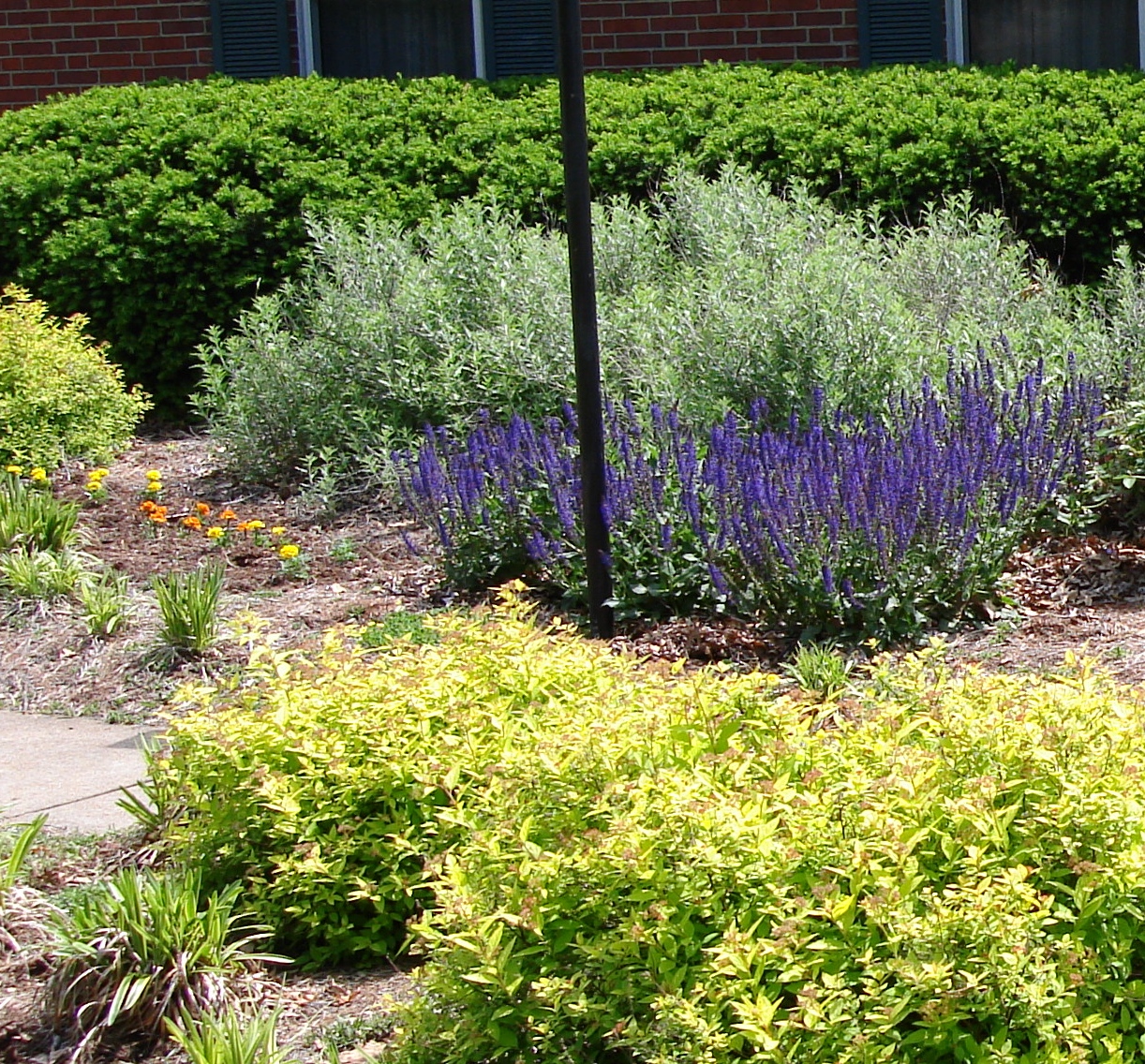 job that I have always enjoyed. It’s one of the only jobs I have ever had that I have enjoyed almost every aspect. The real joy is changing an area and making it better. It’s fun. I find it easy. There is something about it just really appeals to me – even when I have to look up and study about a plant or tree. Gardening doesn’t seem like work. That is why I have enjoyed it. It doesn’t really seem like work. It’s something that is fun to do with a lot of good side effects.
job that I have always enjoyed. It’s one of the only jobs I have ever had that I have enjoyed almost every aspect. The real joy is changing an area and making it better. It’s fun. I find it easy. There is something about it just really appeals to me – even when I have to look up and study about a plant or tree. Gardening doesn’t seem like work. That is why I have enjoyed it. It doesn’t really seem like work. It’s something that is fun to do with a lot of good side effects.
3. What was your best day as a gardener?
I’ve had a lot! The best days or the generic best day is when we approach a yard. It might be awful and overgrown. We take 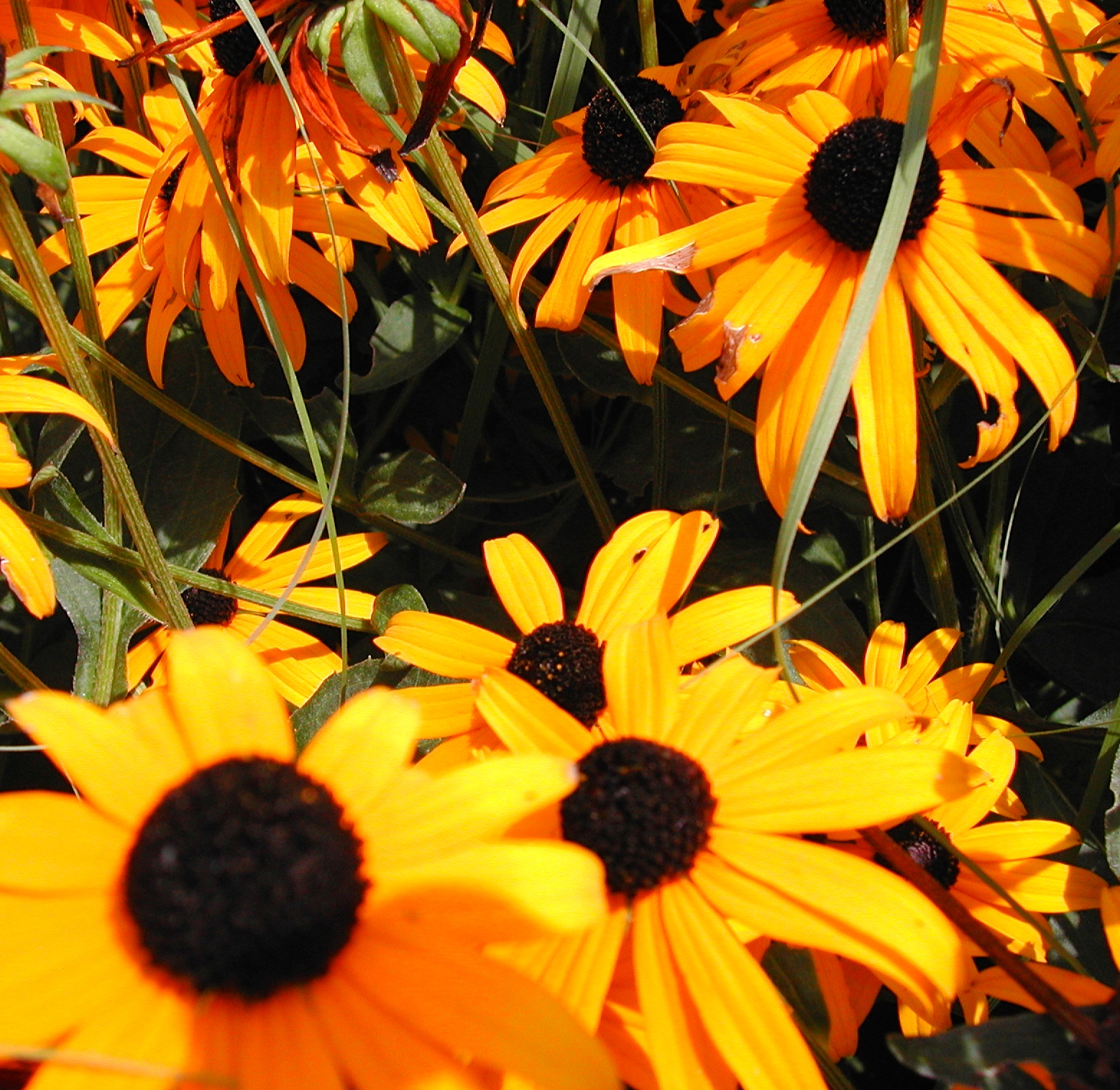 everything out and make it bare. Then we stand back with the owner and look. We think about it. We think about creating something that the owner is going to enjoy, love, and is going to be tailored to what is wanted. Maybe it will be a garden that you don’t have to do anything to. You can have a garden that you have to get out there and tweak it a little bit. We try to create the perfect solution to what they are looking for. I’ve dozens of experiences and days like that where we have just transformed something over a period of day or two and hopefully made someone’s life a lot easier and more enjoyable. I can think of dozens of jobs like that. Those are the best days. The best part is at the very end. Ideally, after we have talked about what they want to do, the owner goes away and comes back when it is all done. That is the best part. They look at their new yard and their new garden and it is just perfect. They are happy. Sometimes when they don’t say anything, you can see the happiness on their face. That’s the best. About a year ago, we went to a yard owned by an older woman.
everything out and make it bare. Then we stand back with the owner and look. We think about it. We think about creating something that the owner is going to enjoy, love, and is going to be tailored to what is wanted. Maybe it will be a garden that you don’t have to do anything to. You can have a garden that you have to get out there and tweak it a little bit. We try to create the perfect solution to what they are looking for. I’ve dozens of experiences and days like that where we have just transformed something over a period of day or two and hopefully made someone’s life a lot easier and more enjoyable. I can think of dozens of jobs like that. Those are the best days. The best part is at the very end. Ideally, after we have talked about what they want to do, the owner goes away and comes back when it is all done. That is the best part. They look at their new yard and their new garden and it is just perfect. They are happy. Sometimes when they don’t say anything, you can see the happiness on their face. That’s the best. About a year ago, we went to a yard owned by an older woman.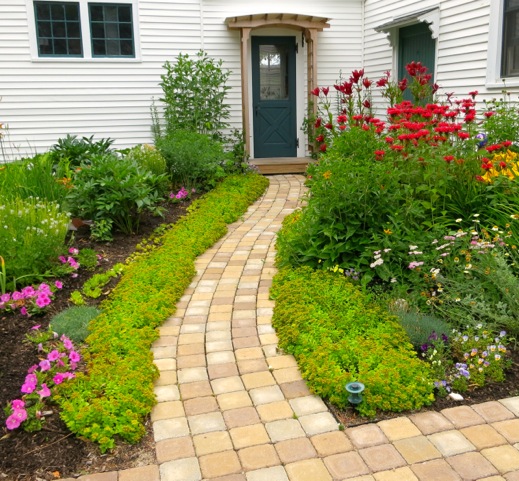 There were a lot of challenges in the yard. There were a lot of old ewes. There were a lot of things that were not working for her. She couldn’t get out there and do a lot of work herself. She wanted different pathways created so she could get out there with her wheelchair. She wanted to enjoy it and appreciate it. Currently she could barely even leave her house. When she went out her back door, there was a steep decline. When we first went there, we told her, “Well, let us think about it for a day.” I went back there that night and looked at her yard. I thought about it and didn’t have a solution initially. I wanted to try to make it exactly what she wanted. I woke up the next morning and did have the solution. I went back there a couple of days later and created walkways and built up areas where she could go out. We planted different plants and shrubs that she could enjoy but didn’t have to do a thing for them. It took a while. I think we had to go back a third time to tweak it and make sure it was done exactly right. When it was all said and done, she was ecstatic and happy. You could tell. It was a very good experience.
There were a lot of challenges in the yard. There were a lot of old ewes. There were a lot of things that were not working for her. She couldn’t get out there and do a lot of work herself. She wanted different pathways created so she could get out there with her wheelchair. She wanted to enjoy it and appreciate it. Currently she could barely even leave her house. When she went out her back door, there was a steep decline. When we first went there, we told her, “Well, let us think about it for a day.” I went back there that night and looked at her yard. I thought about it and didn’t have a solution initially. I wanted to try to make it exactly what she wanted. I woke up the next morning and did have the solution. I went back there a couple of days later and created walkways and built up areas where she could go out. We planted different plants and shrubs that she could enjoy but didn’t have to do a thing for them. It took a while. I think we had to go back a third time to tweak it and make sure it was done exactly right. When it was all said and done, she was ecstatic and happy. You could tell. It was a very good experience.
4. What was your worst day as a gardener?
There are some bad days definitely. One of the worst days was when the directions we were given initially were not accurate about what we were supposed to do. It involved creating a bed 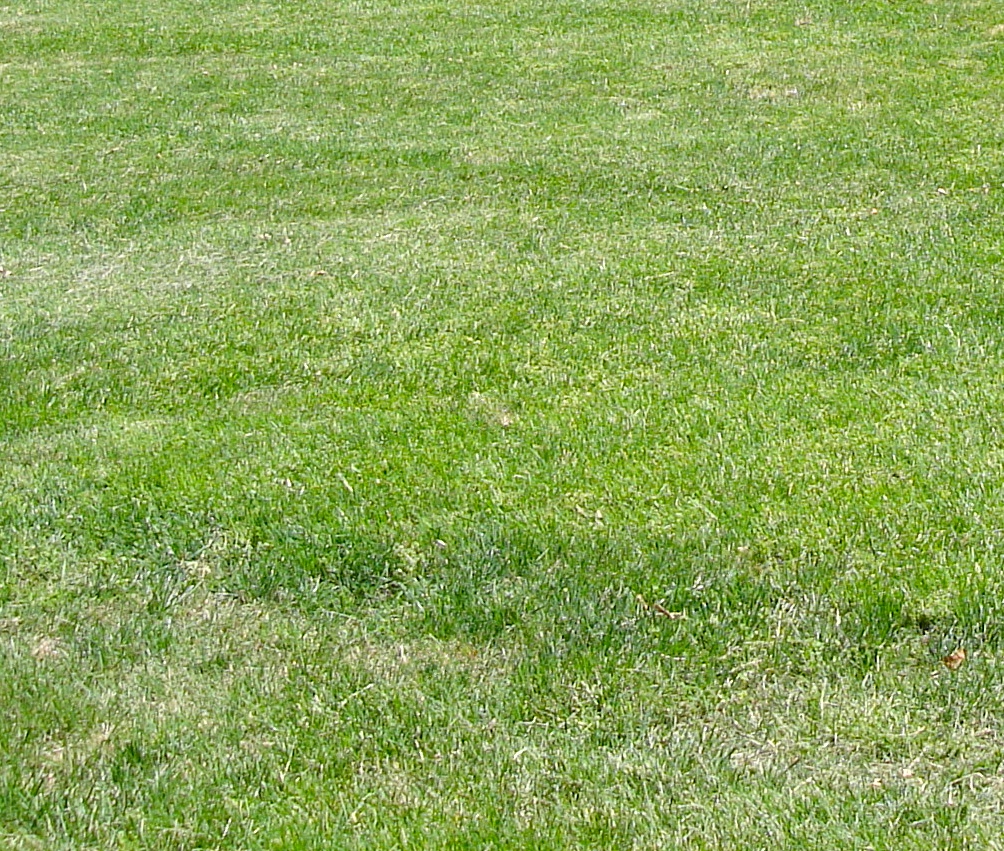 in a yard and taking out sod. The instructions were vague and the customer wasn’t home. We weren’t able to reach the person who gave the instructions. We were limited in our time. We really thought what we were doing was correct. I wouldn’t have just taken a guess. We began taking out a lot of sod – thinking it was going to be a future bed. Of course we were wrong. That’s not where they wanted the bed. By the time we found out the next day, the sod was already taken back and thrown into a dumpster. So we had to go and dig it out and try to find the best sections of it and bring it back and make the best of it and then of course create the bed where they wanted it. We had to do it at nighttime because we were so booked. We had to also work the following weekend to do what we should have done before. That was one of the worst days that I can think of. Another situation was where things were taken out that
in a yard and taking out sod. The instructions were vague and the customer wasn’t home. We weren’t able to reach the person who gave the instructions. We were limited in our time. We really thought what we were doing was correct. I wouldn’t have just taken a guess. We began taking out a lot of sod – thinking it was going to be a future bed. Of course we were wrong. That’s not where they wanted the bed. By the time we found out the next day, the sod was already taken back and thrown into a dumpster. So we had to go and dig it out and try to find the best sections of it and bring it back and make the best of it and then of course create the bed where they wanted it. We had to do it at nighttime because we were so booked. We had to also work the following weekend to do what we should have done before. That was one of the worst days that I can think of. Another situation was where things were taken out that 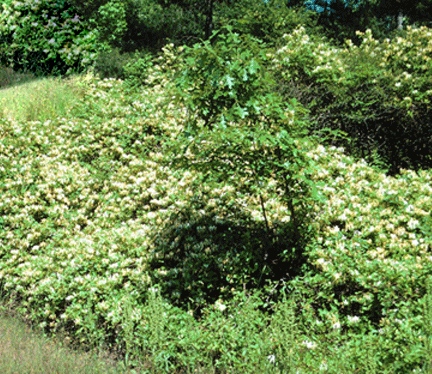 shouldn’t have been. Last year we went to a customer’s house and we were given written instructions. We thought we were doing the correct thing. We ended up cutting some honeysuckle of all things! They wanted it kept! There was a branch going towards her house. Over the wintertime the birds would sit on this branch. She would be able to sit at her window and enjoy the birds. This branch got
shouldn’t have been. Last year we went to a customer’s house and we were given written instructions. We thought we were doing the correct thing. We ended up cutting some honeysuckle of all things! They wanted it kept! There was a branch going towards her house. Over the wintertime the birds would sit on this branch. She would be able to sit at her window and enjoy the birds. This branch got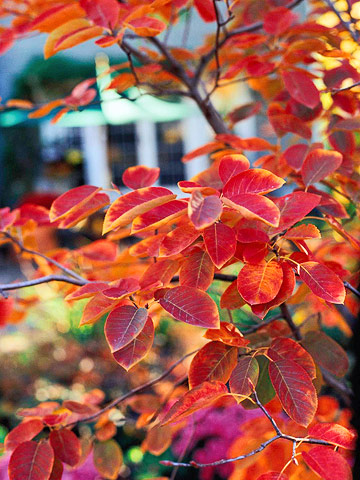 cut and she called the next day. For almost an hour she was in tears about that lost honeysuckle branch. We had to think of a solution. We ended up planting a different tree there. We tried to find a honeysuckle shrub out there, but no one sells them. We offered to dig one up from a neighbor’s yard and plant it there. But that didn’t work out. So, we planted a seven-sons shrub there – or a serviceberry – hoping it would grow quickly and the birds could sit there in the wintertime. This is the worst kind of day. Over the past years there have been some of the worst kinds of
cut and she called the next day. For almost an hour she was in tears about that lost honeysuckle branch. We had to think of a solution. We ended up planting a different tree there. We tried to find a honeysuckle shrub out there, but no one sells them. We offered to dig one up from a neighbor’s yard and plant it there. But that didn’t work out. So, we planted a seven-sons shrub there – or a serviceberry – hoping it would grow quickly and the birds could sit there in the wintertime. This is the worst kind of day. Over the past years there have been some of the worst kinds of 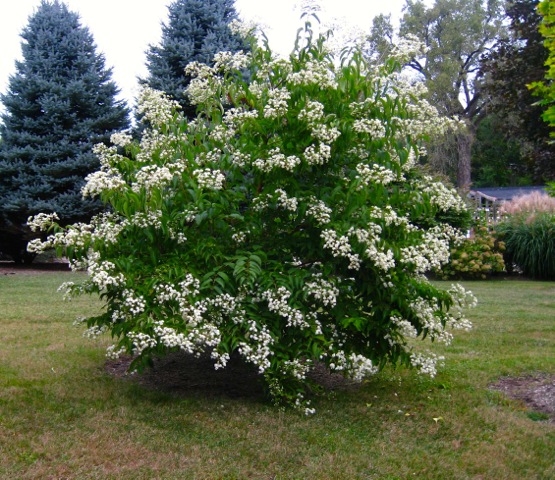 days, but only a few. These are the days that wrong things are done and there isn’t an easy solution. Once a plant is dug out of the ground or sod is thrown away, putting it back is tricky! The lesson that I’ve picked up in gardening is that if I’m in a yard pulling weeds and I’m not 100% sure something is a weed, I’ll stop and identify it before I yank it up. Everyone has their particular plants and trees and shrubs and flowers that they are particularly attached to. You can always pull it up later, but once it is pulled up and in the dumpster, it’s usually gone!
days, but only a few. These are the days that wrong things are done and there isn’t an easy solution. Once a plant is dug out of the ground or sod is thrown away, putting it back is tricky! The lesson that I’ve picked up in gardening is that if I’m in a yard pulling weeds and I’m not 100% sure something is a weed, I’ll stop and identify it before I yank it up. Everyone has their particular plants and trees and shrubs and flowers that they are particularly attached to. You can always pull it up later, but once it is pulled up and in the dumpster, it’s usually gone!
5. How did you survive your worst day?
I’ve learned that I’ve just got to muck on through and keep going. I try to think of the bigger picture and usually try to 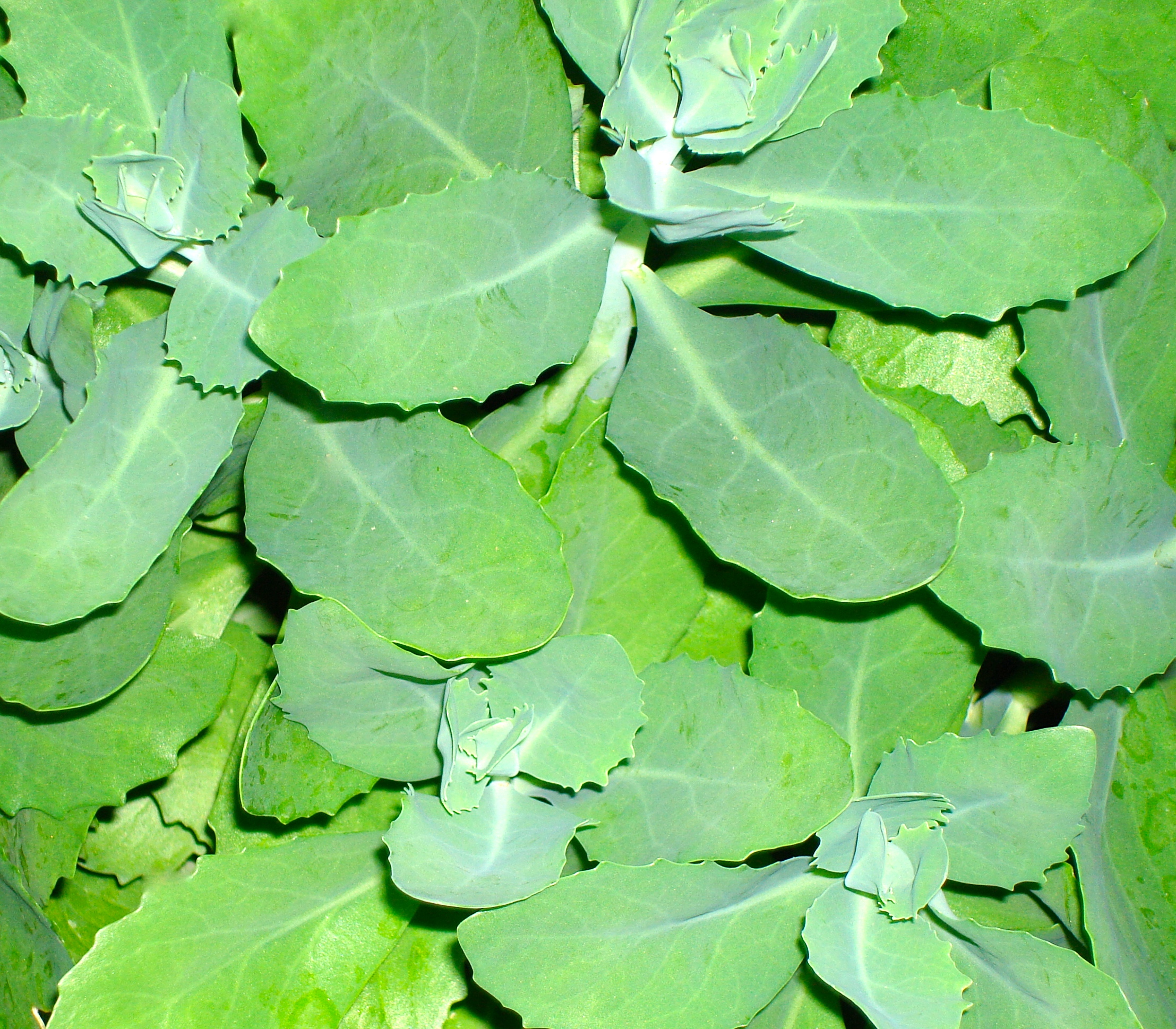 think of the solution. When the honeysuckle was cut, I talked to about ten people and asked them, “What do you recommend? What can we plant there instead that could be planted quickly and would attract birds?” I just always try to find a solution. If I can’t I think of the larger picture of why I am doing this – to provide for my family — and try to focus on that and keep that in mind. One of those solutions will get me through the day. The lesson that I’ve picked up in gardening is that if I’m in a yard pulling weeds and I’m not sure 100% sure something is a weed, I’ll stop and identify it before I yank it up. Everyone has their particular plants and trees and shrubs and flowers that they are particularly attached to. You can always pull it up later, but once it is pulled up and in the dumpster, it’s usually gone! If someone wants to be a gardener, I would say, “Get out there
think of the solution. When the honeysuckle was cut, I talked to about ten people and asked them, “What do you recommend? What can we plant there instead that could be planted quickly and would attract birds?” I just always try to find a solution. If I can’t I think of the larger picture of why I am doing this – to provide for my family — and try to focus on that and keep that in mind. One of those solutions will get me through the day. The lesson that I’ve picked up in gardening is that if I’m in a yard pulling weeds and I’m not sure 100% sure something is a weed, I’ll stop and identify it before I yank it up. Everyone has their particular plants and trees and shrubs and flowers that they are particularly attached to. You can always pull it up later, but once it is pulled up and in the dumpster, it’s usually gone! If someone wants to be a gardener, I would say, “Get out there 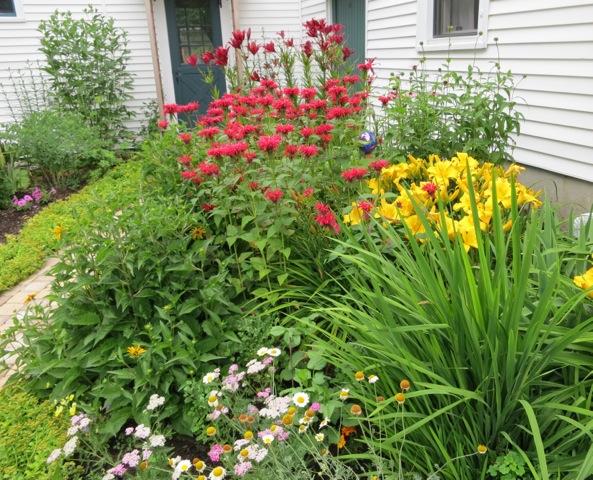 and do it!” I hear from a lot of customers that they have hired gardeners before and they haven’t shown up or they just didn’t seem to care. If someone is really passionate about it, there are a lot of people who would like to talk to them. Gardening takes someone who enjoys it and is reliable. So if you are interested in gardening talk to those people. Get out there. Do it! I’ve had no problem finding regular customers by word of mouth. They all seem to appreciate the fact that I do enjoy gardening. Oftentimes I’ll go do a job and for an hour talk to them about their job – as opposed to other gardeners who are in a hurry and will go and only briefly want to talk about what the customer wants to do. I enjoy talking to customers about their yard and how to make it better. I know the best landscapers and gardeners and they are all
and do it!” I hear from a lot of customers that they have hired gardeners before and they haven’t shown up or they just didn’t seem to care. If someone is really passionate about it, there are a lot of people who would like to talk to them. Gardening takes someone who enjoys it and is reliable. So if you are interested in gardening talk to those people. Get out there. Do it! I’ve had no problem finding regular customers by word of mouth. They all seem to appreciate the fact that I do enjoy gardening. Oftentimes I’ll go do a job and for an hour talk to them about their job – as opposed to other gardeners who are in a hurry and will go and only briefly want to talk about what the customer wants to do. I enjoy talking to customers about their yard and how to make it better. I know the best landscapers and gardeners and they are all 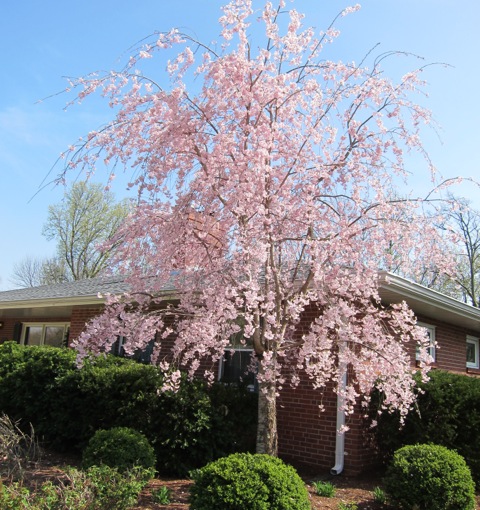 passionate about what they are doing. If I ever call about a plant and what to do with it, they will talk for a half an hour about one plant. They’ll even research it online while I am talking to them. You can tell that they enjoy it and why they are in it. Typically the one’s that aren’t that good, are the exact opposite. They don’t care about a particular shrub. They just take a guess or do nothing. There are people out there like that too. Most of the people I work with are pretty good and pretty passionate about plants. The life aspect is so good. If you have a plant or a shrub or a tree, it’s not like a pet or a child, but it is a living thing that responds like a living thing. If you give it love and attention and do the right thing, you will be rewarded because it is happy and grows and looks good and it gives you pleasure. If you are passionate about gardening, there is definitely a niche out there for you. If you are young or if you are old, there is a niche out there for you. There is a place out there for anybody that would like to get involved in gardening.
passionate about what they are doing. If I ever call about a plant and what to do with it, they will talk for a half an hour about one plant. They’ll even research it online while I am talking to them. You can tell that they enjoy it and why they are in it. Typically the one’s that aren’t that good, are the exact opposite. They don’t care about a particular shrub. They just take a guess or do nothing. There are people out there like that too. Most of the people I work with are pretty good and pretty passionate about plants. The life aspect is so good. If you have a plant or a shrub or a tree, it’s not like a pet or a child, but it is a living thing that responds like a living thing. If you give it love and attention and do the right thing, you will be rewarded because it is happy and grows and looks good and it gives you pleasure. If you are passionate about gardening, there is definitely a niche out there for you. If you are young or if you are old, there is a niche out there for you. There is a place out there for anybody that would like to get involved in gardening.
- « Previous person: Aderienne Smith
- » Next person: Lois Severin